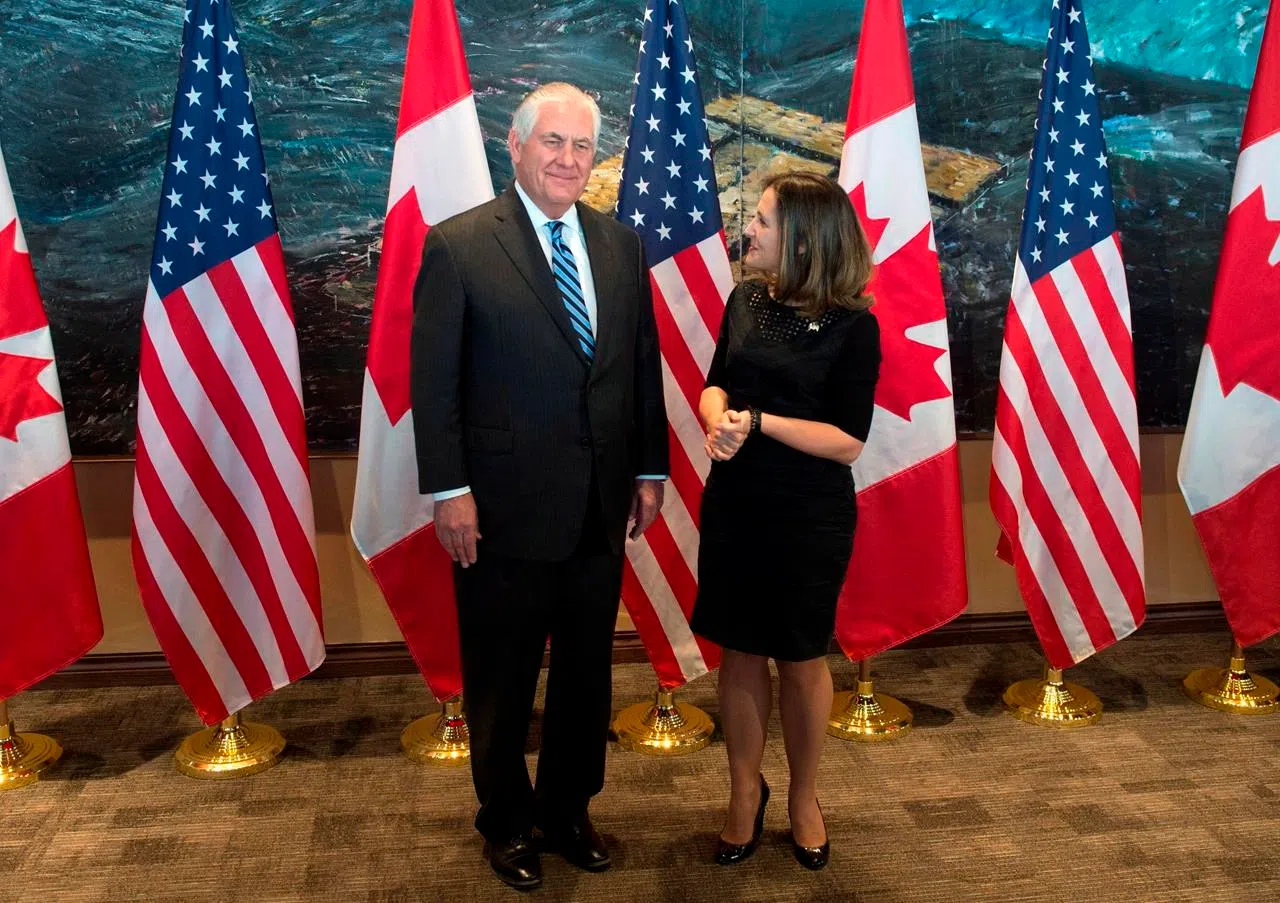
Canada and U.S. to host North Korea meeting in Vancouver next month
OTTAWA — Canada and United States will co-host a major international meeting of foreign ministers on the North Korean crisis next month in Vancouver.
Foreign Affairs Minister Chrystia Freeland announced the Jan. 16 date alongside U.S. Secretary of State Rex Tillerson during his visit to Ottawa for a series of meetings Tuesday, including a sit-down with Prime Minister Justin Trudeau.
The North Korean nuclear crisis dominated discussions between the two ministers.
But Tillerson also sounded a conciliatory note on the ongoing talks to modernize the North American Free Trade Agreement, saying the U.S. wants a deal that is “fair” all around.


